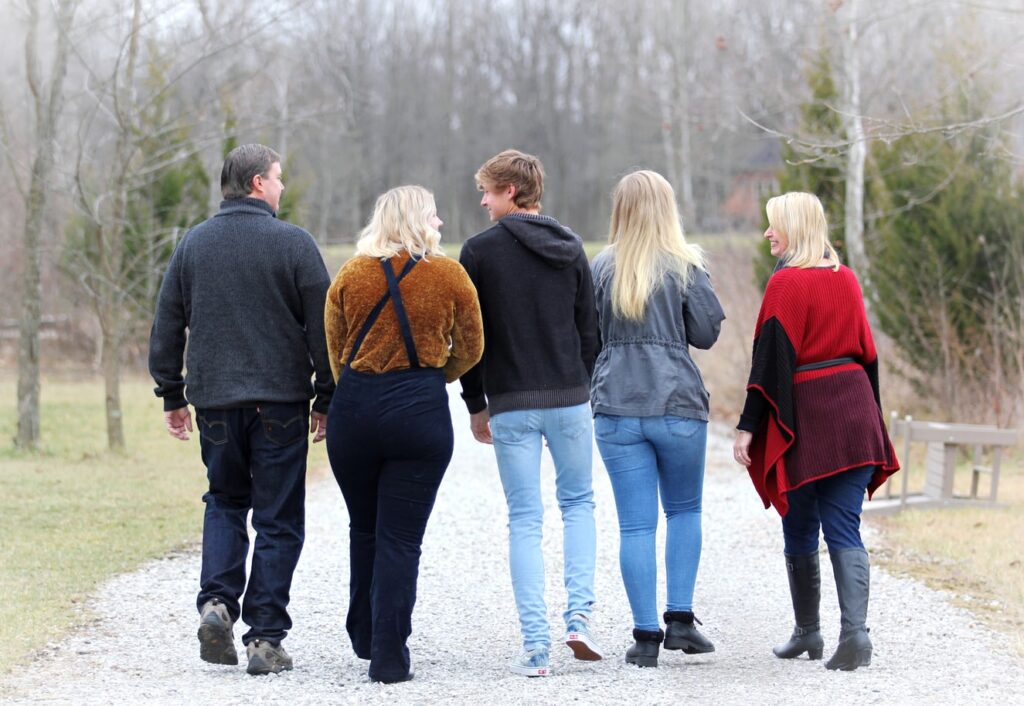
Watching my mom’s trembling lip and teary eyes as she fried onions over the stove, I could feel an overwhelming mix of both humor and sadness in that moment. I was at home with my family in England the night before my sister would leave for New Zealand, and my mom was making a farewell casserole. I lived in Germany, and my brother in Hong Kong, so my sister’s move struck a particular chord with my parents, who would now have all three of their children living in different countries.
RELATED: Ways to Strengthen Your Relationship With Your Parents
My reaction to my mom’s sadness was a disorienting reversal of our parent-child role. Seeing my mom’s grief was particularly heartbreaking, because I hadn’t fully realized what us moving on with our lives meant for hers.
This feeling of loss and loneliness is commonly called Empty Nest Syndrome. As young people leave home, parents can experience pride at their child’s newfound independence, and sadness because they have a lesser role in their child’s daily life (and no need to cook casseroles anymore!). As the child “leaving the nest,” it’s not easy to balance the difficulties of adulthood and simultaneously worry about your parents, but there are a few things you can try to make this transition one of joy, not sadness.
Really stay in contact
It is easy to get lost in the excitement of your new beginning, as I did when I first went to college. While adapting to campus housing, a busy class schedule and joining the creative writing society, responding to my parents’ calls took a back seat. Only after being scolded by my mother did I realize three weeks had gone by since I had spoken to my parents. I vowed the next time I was walking to a friend’s house, I would call them.
Eventually, I started updating them on pretty mundane details of my life, and they loved it! Get a haircut? Tell them! Your parents are probably interested in everything you are doing, or at the very least, they want to hear that you are alive and well. When in doubt, over-communicate.
Express gratitude — a lot
Sometimes it takes leaving home to realize that the dishes don’t wash themselves. I never knew how quickly floors get dirty, and that you have to sweep your house almost daily to keep things looking clean. My mom had always done this! And she never complained once. So even if it seems too late to say it, thank your parents, even if it’s for something small, like sweeping. Not only does expressing gratitude improve your mental well-being, the acknowledgment that your parents are doing a good job will also brighten their day.
Encourage your parents to pursue their interests
It takes a lot of persuasion to get my parents to prioritize themselves. My dad is about to retire, while my mom’s new social enterprise, which involves teaching young children from underprivileged backgrounds how to read, keeps her busy. These pursuits, however, took our assurance that yes, it is okay if they don’t plan their schedules around us. Your parents will likely feel guilty about pursuing interests which make them less available to you. That’s why simply asking about their interests or showing excitement about their plans will make a world of difference to them and remind them they have a purpose beyond parenthood.
Make plans, plans, and even more plans
I know you might be sick of your parents asking when you’ll be home next to see them, but having a date on the calendar is comforting in ways that a vague future plan just can’t replace. My mom often pestered me to tell her the exact days I would be home for Christmas. My reaction? Irritation. But recently, I’ve come to appreciate that while she knew I would be home at some point, it didn’t feel real until the date was set in stone. My giving her those dates allowed her to feel she had regained some control.
It is always strange to realize your parents go through times of transition just as you do, and aren’t the imperturbable pillars they once were, just as they need to accept you aren’t a child any longer. In seeing my parents’ vulnerability, I learned to appreciate them not just as parents, but as human beings. Today, we are close, open, and reliant on each other; as a family, as adults, and as friends.